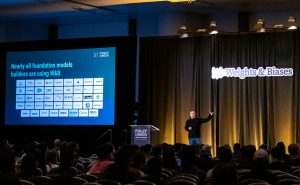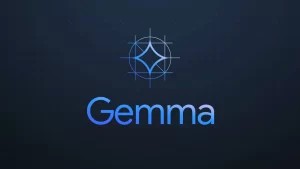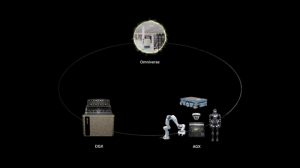MOUNTAIN VIEW — In a major step toward supporting its clean energy goals and meeting the growing energy demands of artificial intelligence (AI) technologies, Google has announced the world’s first corporate agreement to purchase nuclear energy from small modular reactors (SMRs) developed by Kairos Power. This strategic partnership is set to accelerate the deployment of next-generation nuclear technologies, providing up to 500 MW of new 24/7 carbon-free power to the U.S. electricity grid by 2035. The deal will help power Google’s global data centers and AI systems while contributing to the broader decarbonization of the energy grid across the U.S.
Google has long been a leader in adopting renewable energy solutions, having pioneered the first corporate renewable electricity agreements over a decade ago. This new agreement with Kairos Power marks a significant expansion of Google’s commitment to clean energy by embracing advanced nuclear technology as part of a diversified strategy to achieve 24/7 carbon-free energy. The initial SMR from Kairos Power is expected to be operational by 2030, with additional reactors to follow, providing consistent, reliable, and sustainable energy.
Why Nuclear Power is Crucial for AI and Data Centers
As Google continues to develop AI technologies that are driving scientific breakthroughs, transforming industries, and enhancing customer services, the company’s energy needs are growing. The integration of AI requires large-scale, round-the-clock electricity, especially to power data centers that support machine learning and advanced computing. Clean, reliable energy is critical to ensure that these facilities operate efficiently while reducing their carbon footprint.
Nuclear energy, particularly through the use of SMRs, offers a clean and continuous energy source that aligns with Google’s goals of delivering 24/7 carbon-free electricity. Unlike renewable sources such as wind or solar, which can be variable, nuclear power provides a steady supply of energy at all times. This ensures that Google’s data centers and AI systems can operate without interruption, helping the company meet its energy needs sustainably while unlocking the full potential of AI to benefit customers worldwide.
How Small Modular Reactors Will Transform Energy Use
Small modular reactors represent a new era of nuclear technology. These reactors are smaller in size and can be manufactured in modules, allowing for faster deployment and more flexibility in where they can be installed. Kairos Power’s SMRs feature a molten-salt cooling system combined with ceramic pebble-type fuel, which allows for a more efficient transfer of heat to a steam turbine, generating power safely and affordably. The reactors operate at low pressure, which simplifies their design and enhances their safety profile.
This technology will allow Google to access a dependable and secure energy source, providing long-term cost savings and reducing reliance on fossil fuels. Kairos Power’s innovative approach also uses an iterative development strategy, with multiple hardware demonstrations planned before the full commercial deployment of SMRs. This method will allow for ongoing improvements in efficiency, cost predictability, and operational safety as more reactors come online.
Economic and Environmental Benefits
Beyond meeting Google’s energy demands, this agreement has the potential to deliver substantial economic benefits to communities across the U.S. According to the U.S. Department of Energy (DOE), nuclear power has the highest economic impact of any power generation source, creating long-term, high-paying jobs. The DOE estimates that achieving 200 GW of advanced nuclear capacity in the U.S. by 2050 will require an additional 375,000 workers.
Kairos Power has already made significant strides toward its first power-producing reactor, having broken ground on its Hermes non-powered demonstration reactor in Tennessee. This project, which received a construction permit from the U.S. Nuclear Regulatory Commission earlier this year, represents the first step toward commercializing advanced nuclear technology and scaling its benefits across the country.
Advancing Innovation in Clean Energy
This agreement with Kairos Power is part of Google’s broader strategy to support a wide range of advanced clean electricity technologies. By incorporating SMRs into its energy portfolio, Google is complementing its investments in solar, wind, and other variable renewables. This diversified approach helps the company meet its net-zero carbon goals while ensuring that its data centers and offices are powered by clean, reliable energy.
Last year, Google completed an enhanced geothermal project with Fervo Energy, and earlier in 2024, the company partnered with utilities across the U.S. to expand its clean energy transition initiatives. By securing energy from multiple reactors through what experts call an “orderbook” approach, Google aims to accelerate reactor deployments, lowering costs and making advanced nuclear energy available to more communities.
A Shared Vision for the Future of Energy
Google remains committed to scaling up its use of advanced energy technologies and providing clean, affordable power for its operations worldwide. Through this partnership with Kairos Power, Google aims to continue driving innovation in the energy sector while helping to achieve global decarbonization goals.



















